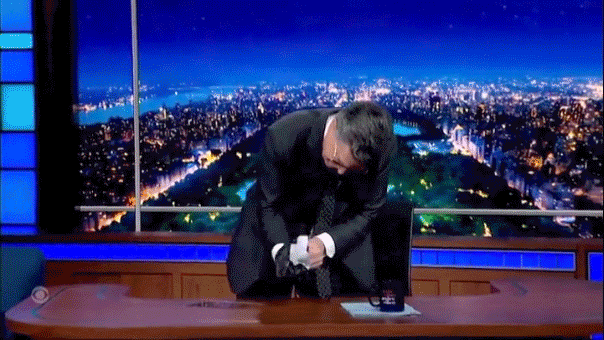Joy Behar scolds male members of 'View' audience who didn't applaud Christine Blasey Ford
'The View' co-host Joy Behar calls out male members of the studio audience who didn't applaud remarks by Christine Blasey Ford.
Christine Blasey Ford returned to a sympathetic national media spotlight this week, albeit with far less fanfare than six years ago, to discuss her new memoir and the aftermath of her sexual assault accusations against Supreme Court Justice Kavanaugh.
The memoir, "One Way Back," details her experience and what led up to her testimony during the Kavanaugh confirmation hearings as well as its "overwhelming aftermath." Part of her media tour included interviews with ABC News' "The View," NPR and CBS.
On "CBS Sunday Morning," host Tracy Smith began the segment with an extended surfing metaphor for Ford, saying the waters around her Santa Cruz, Calif., home were beautiful to look at, but it took a certain "fortitude" to jump in the dangerous waves. Ford, an experienced surfer herself, has extended surfing metaphors peppered throughout her book.
"She knows just what it takes to summon up your courage and hurl yourself off a cliff," Smith said, before introducing Ford as becoming a household name when she accused Kavanaugh of sexual assault in 2018.
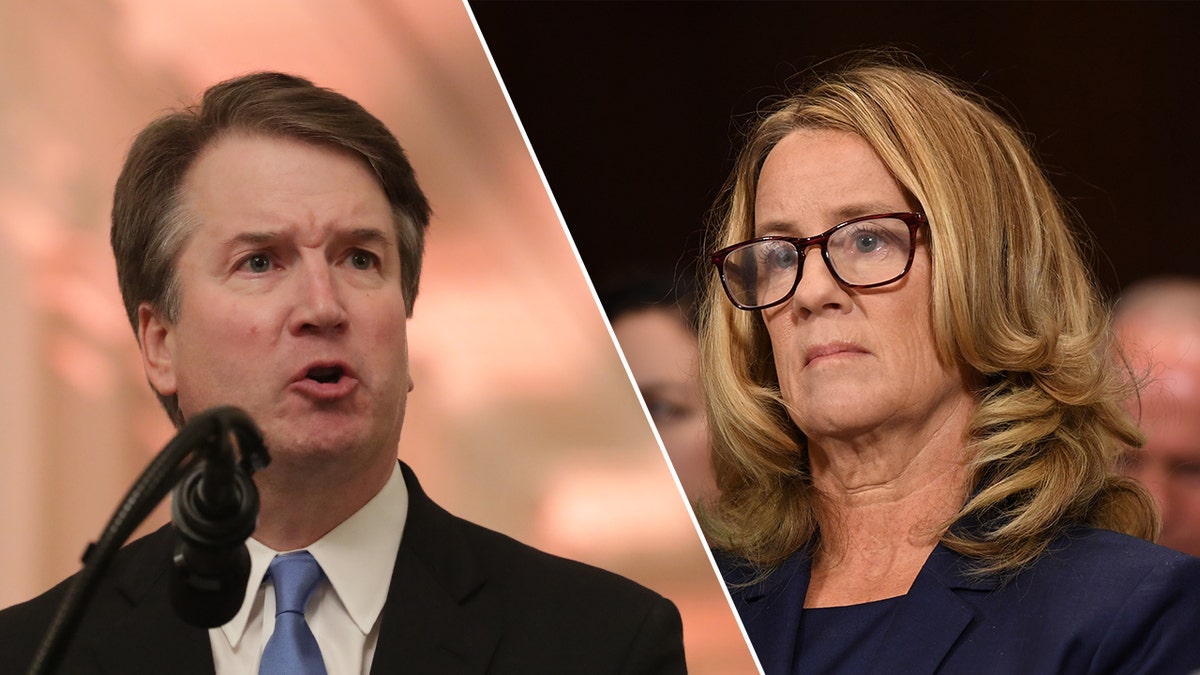
Christine Blasey Ford, who accused Justice Brett Kavanaugh of sexual assault, returned to the media spotlight. (Left: (Photographer: Andrew Harrer/Bloomberg via Getty Images) Right: (Photo by Saul Loeb-Pool/Getty Images))
Smith said Ford's moment in the national spotlight was "deeply traumatizing," bringing up death threats Ford says poured in against her and her family after her accusation against Kavanaugh became public.
On "The View," all the hosts present were sympathetic to Ford's story and book, with one co-host, Sara Haines expressing surprise that anyone still doubted her account.
"You've been called a highly credible witness… but even today, some people remain skeptical of your story," Haines said, noting Ford's anecdote that Republican Sen. Lindsey Graham, S.C., wouldn't make eye contact with her at the emotional hearing. "Were you prepared for that kind of response?"
"I was prepared ahead of time that none of the Republicans were going to speak with me, and they were going to use an outside interviewer, and so I was actually surprised at how kind some of the other Republican senators were who broke that protocol and said hello," she responded.

Joy Behar scolds male audience members at "The View" for not clapping for Christine Blasey Ford. (Screenshot/ABC/TheView)
LIBERAL ‘SECRET’ KAVANAUGH DOCUMENTARY AT SUNDANCE AIMS TO REOPEN SEXUAL ASSAULT ALLEGATIONS
At another point in the interview, co-host Joy Behar scolded male members of the audience who didn't applaud Ford when she said she would come forward again, even after all the consequences for her and her family.
After she said that a small percentage of the thousands of letters who have written to her were men, Behar challenged men to "step up."
"They need to understand, they have to step up to help us," Behar said of men. "We can’t do this ourselves. I notice, I watch when people were clapping. Some of the men did not clap in this audience."
During an interview with NPR's Terry Gross, Ford was asked, "How did you write your book without retraumatizing yourself?"
"I did retraumatize myself, having to go back through everything and relive it. And I tried to write a book a couple of years after the testimony and just really wasn't able to engage in the material. And when I looked at what I had written, I didn't think it was something that would be very useful anyway. So I abandoned that project for a while and then took it back up once I felt a lot better five years later," she said.
Ford also told NPR that the Senate hearing was more traumatizing than the alleged assault itself.
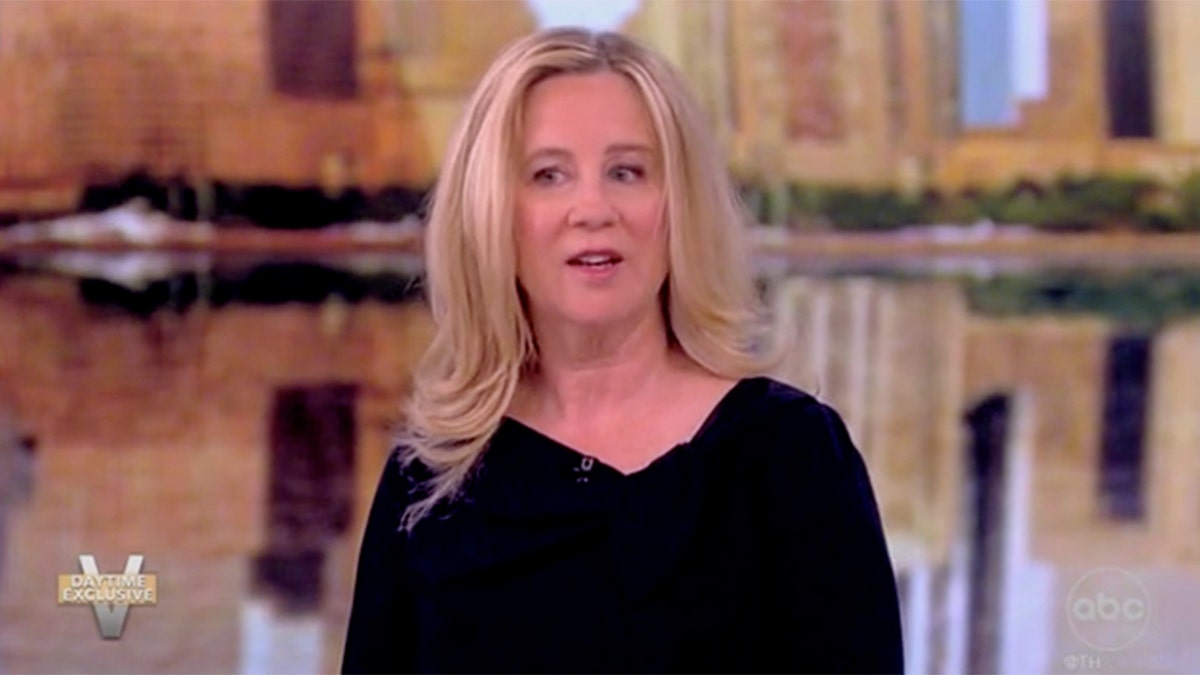
Christine Blasey Ford sat down with the co-hosts of "The View" on Tuesday, March 19, 2024. (Screenshot/ABC/TheView)
SUPREME COURT JUSTICE KAVANAUGH IS HOPEFUL FOR ‘CONCRETE STEPS’ TO ADDRESS ETHICS COMPLAINTS
"The hearing and the aftermath of the hearing were more difficult for me than the original assault that I had tucked away and moved on from. Once I moved to California, I had really moved on from, kind of, most things East Coast, and it brought it all back up again. So it was very difficult," she said.
The book received reviews from The Washington Post, The Atlantic, The New York Times, Slate and more.
The Atlantic said the book was proof that Ford had gotten through the difficulty of the hearings and its aftermath. The review also detailed Ford's account of the difference between her testimony and Kavanaugh's response.
"And she did not realize that, in the testimony itself, she had brought data to a gunfight. The professor had prepared for the occasion as if it was a lecture, marshaling details and context, aiming for clarity. Kavanaugh spoke after Ford, and the gulf between the two testimonies was, in retrospect, an omen. She offered evidence. He offered grievance. She spoke science. He spoke politics. She was piecing together fragments of a story, parts of which she had forgotten. He was controlling the narrative," the review said.
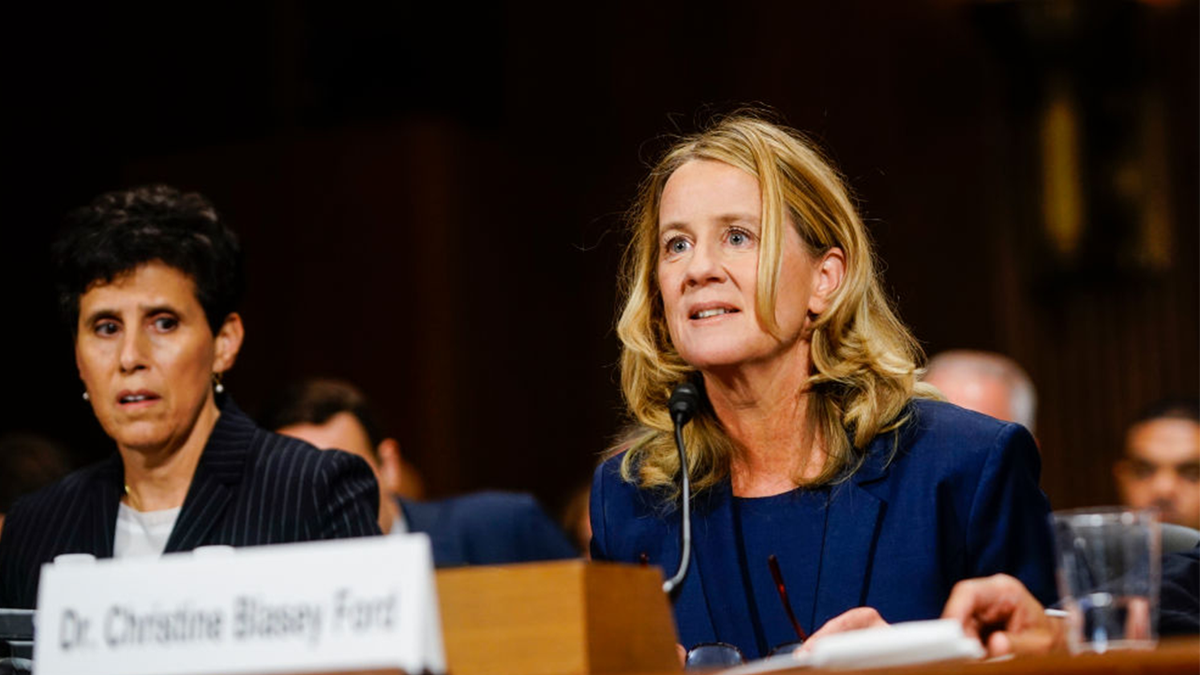
Christine Blasey Ford has released a memoir, "One Way Back," which goes behind the scenes of her accusation that Supreme Court Justice Brett Kavanaugh sexually assaulted her in the 1980s. (Pool/Getty Images)
ARMED SUSPECT ARRESTED NEAR JUSTICE KAVANAUGH HOME, CHARGED WITH ATTEMPTED MURDER
"One Way Back is proof that Ford has emerged from the abyss, but what makes her account unusual and valuable is the way it refuses the comfort of firm ground. The psychologist, by the end of the book, might offer closure. The scientist might offer conclusions. The author might offer catharsis. But Ford can offer none of those. Instead, she offers a model of resilience," The Atlantic's review read.
The New York Times' review gave Ford praise, and said the memoir was a "poetic" retort to "Senator Chuck Grassley’s 414-page, maddening memo on the investigation."
"To her credit, you never really feel you’re drowning, reading 'One Way Back.' But boy do you long for a nice hot shower afterward," the Times' book critic wrote.
The Washington Post's review offered a blunt explanation of what readers might get from the memoir.
"If you believed Ford in 2018, ‘One Way Back’ will give you a deeper appreciation for the woman behind the headlines. If you didn’t — well, I don’t know if the book will change your mind. But it might wiggle your mind a little bit. Because it’s impossible to picture why someone would lie to achieve the kind of fame that has been bestowed upon Ford. It’s hard enough to picture why someone would put themself through that nightmare to tell the truth," the review read.
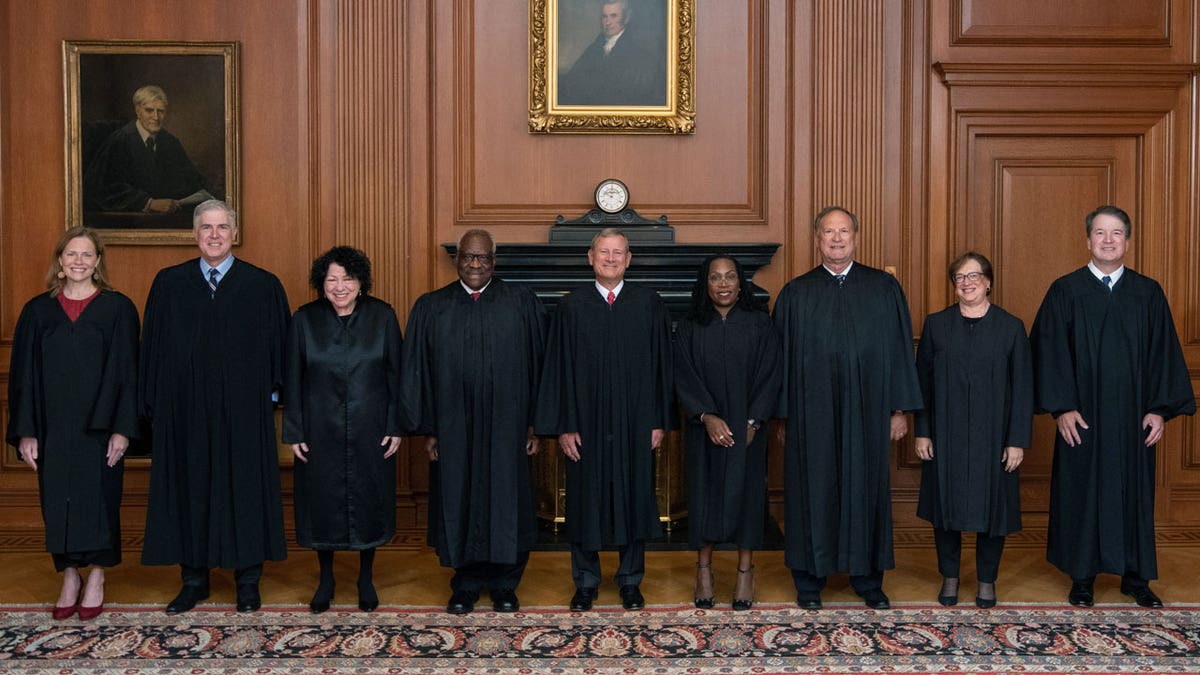
Members of the Supreme Court (L-R) Associate Justices Amy Coney Barrett, Neil M. Gorsuch, Sonia Sotomayor, and Clarence Thomas, Chief Justice John G. Roberts, Jr., and Associate Justices Ketanji Brown Jackson, Samuel A. Alito, Jr., Elena Kagan, and Brett M. Kavanaugh pose in the Justices Conference Room prior to the formal investiture ceremony of Associate Justice Ketanji Brown Jackson September 30, 2022 in Washington, D.C. (Collection of the Supreme Court of the United States via Getty Images)
UnHerd columnist Kat Rosenfield perceived the liberal media praise for Ford as more dutiful than heartfelt.
"What little praise Ford’s effort has received is delivered with the forced cheerfulness of a person accepting a terrible hand-knitted wool sweater, in July, in a color she wouldn’t be caught dead wearing. How thoughtful of you, I… er, I can see you worked really hard on it," she wrote.
CLICK HERE TO GET THE FOX NEWS APP
"Christine Blasey Ford originally emerged at the perfect time to be hailed a resistance hero: MeToo was still ascendant, Roe had not been overturned, the battle to oust Trump from the presidency was not yet won. But that was then; the country and the conversation has moved on, and Ford’s reappearance on the public stage has not only been met without rapture, it does not even appear to be particularly welcome," she added.
In front of the Senate Judiciary committee in September 2018, Ford testified that Kavanaugh sexually assaulted her while drunk at a high school party in the early 1980s.
Ford claimed Kavanaugh held her on a bed and tried to remove her clothes while he covered her mouth with her hand. At the hearing, she said, "I believed he was going to rape me. I tried to yell for help. When I did, Brett put his hand over my mouth to stop me from screaming."
Kavanaugh staunchly denied the accusation and was eventually narrowly confirmed. He called the confirmation process a "national disgrace" and said his name and reputation had been permanently destroyed.
In her book, Ford stood 100 percent behind the accusation and declared Kavanaugh was not a "good person."

